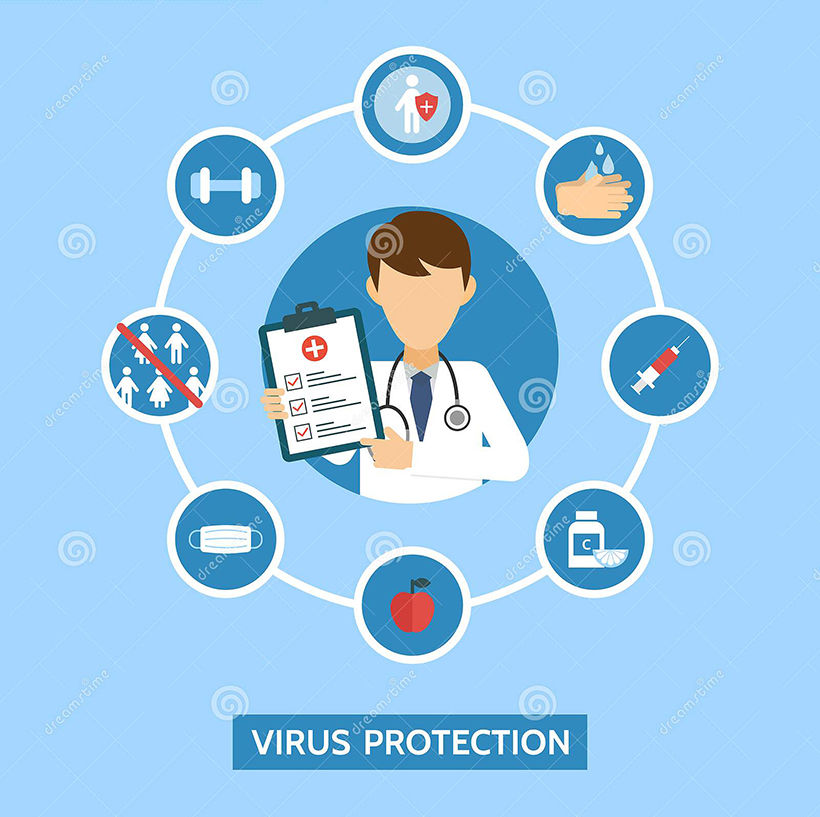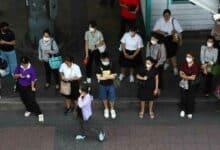Tips for Covid-19 coronavirus prevention

Worried about coronavirus (aka. Covid-19)? Do you, or someone you know, exhibit symptoms? If you live in Thailand, your risk of contracting Covid-19 is exceedingly low, so there’s no need to be overly concerned. Even in a worst-case scenario, the vast majority of healthy people, particularly the younger, will get over a bout of this new virus. We understand that it’s a new story and there’s lots of media coverage as the disease starts to spread beyond China, but there are practical things you can do, and some small habits you can change, to limit your possible exposure.
Be alert, be informed, but there’s no reason to panic. Read a more complete article about Covid-19 HERE.
This virus is contagious, but not as deadly as other outbreaks (at this stage)
Compared to prior outbreaks of novel viruses, this coronavirus appears less deadly than other human coronaviruses that have spread in recent years. For instance, the death rate was about 34% for MERS and about 10% for SARS.
Contrary to some earlier reports, Covid-19 is not airborne but particle-borne, meaning you won’t catch it as it magically floats through the air. You would need to be in close contact with a person who has the virus, or in contact with items the person has touched very recently.
Wash your hands
Viruses can spread from person to person via respiratory droplets. When an infected person coughs or sneezes, close contacts can be infected. In addition, the virus can end up on doorknobs, elevator buttons and other surfaces. If you touch those surfaces and then touch your eyes, nose or mouth, you could become infected (but the virus will live outside a host for a very short time).
So while a mask may not be a bad idea (as it will stop you touching your mouth and nose), its far more important to keep your hands clean and observe good personal hygiene, especially after using public transport or the toilet.
“Wash your hands often with soap and water for at least 20 seconds, especially after going to the toilet, before eating, and after blowing your nose, coughing, or sneezing.”
Other precautions
• Avoid close contact with people who are sick (this is probably good advice anytime!)
• Avoid touching your eyes, nose and mouth (you’d be surprised how many times you do these things subconsciously every minute)
• Stay home if you are sick. Self-isolation is easier these days with FoodPanda, GrabFood (etc), Netflix and your smartphone.
• Cover your cough or sneeze with a tissue, then throw the tissue in the rubbish. Or your hands (then wash), or sneeze into your elbow. Just don’t blow it out into the air for everyone to enjoy.
• Clean and disinfect touched objects and surfaces using a regular household cleaning spray or wipe. If you are a lousy cleaner around the house, make some new habits.
Don’t panic, but be prepared
• Think about the threat of a possible outbreak in your community the way you’d think about a big typhoon. If it never hits, great. If it does, you’ll be glad you prepared. Don’t hoard, but perhaps stock your cupboards with some extra food and cleaning supplies.
• When grocery shopping, buy a few extra items. Stable foods such as beans and rice that can last a long time are good options. Also, use your freezer to preserve foods, from meats and vegetables to cooked grains and even bread. Think about having enough on hand to last a few weeks. This will be handy in case of a zombie apocalypse too (but sort of doubtful).
• Check the medicine cabinet to ensure you have basic medications. If you take a daily prescription medication, have a supply on hand if possible. Think about a back-up plan if schools or some local shops were to close during an outbreak.
• Ask your employer about a work-from-home options or at least explore whether you have all the technology available to complete your work away from the office if the need arises. Discuss about KPIs (key performance indicators) and daily reporting to come up with ways you could do all, or most, of your work from home, if the necessity arose.
Postpone non-urgent travel
The US Centres for Disease Control updates its travel advisory information frequently. Most governments use the same four-level scale to rank risk, with Level 1 being the lowest risk and Level 4 the highest. For parts of Italy, where there’s been sustained spread of the novel coronavirus, there’s now a Level 4 alert. South Korea, Japan, some European cities, Iran and the US are currently the new growth areas for new cases.
The US CDC also advises older adults and those with chronic medical conditions to consider postponing non-essential travel and take additional precautions.
“Travellers should avoid contact with sick people and clean their hands often by washing with soap and water for at least 20 seconds or using an alcohol-based hand sanitiser with 60%-95% alcohol.”
Check your health insurance to see if it includes international travel coverage. Also, consider travel health insurance and medical evacuation insurance. It’s estimated, that without insurance, a medical evacuation could cost over three million baht. If you’re planning a cruise or overseas travel, consider the possibility of travel disruptions.
If you were quarantined, what would be your back-up plan for your work and family responsibilities back home?
SOURCE: NPR
Latest Thailand News
Follow The Thaiger on Google News:


























